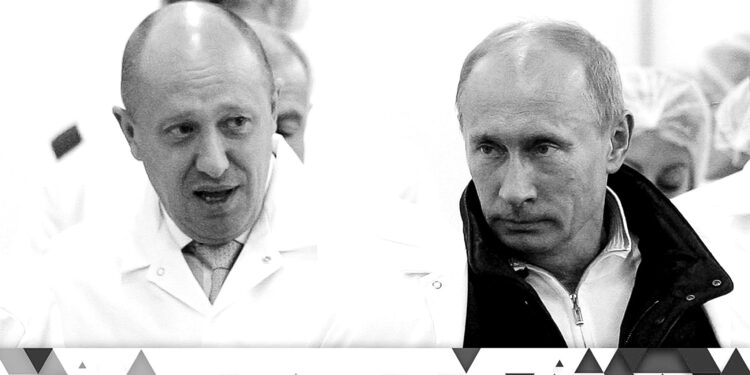- In an abrupt about-face, Wagner chief Yevgeny Prigozhin said he had called off his troops’ march on Moscow and ordered them to move out of Rostov. Under a deal brokered by Belarus, Prigozhin agreed to leave Russia and move to Belarus. He will not face charges and Wagner troops who took part in the rebellion will not face any action in recognition of their previous service to Russia.
- In a statement, Prigozhin said that he wanted to avoid the spilling of “Russian blood”. “Now the moment has come when blood can be shed,” he said. “Therefore, realising all the responsibility for the fact that Russian blood will be shed from one side, we will turn our convoys around and go in the opposite direction to our field camps.”
- The Wagner leader was later pictured leaving the headquarters of the southern military district (SMD) in Rostov, which his forces had occupied on Saturday. Wagner forces also shot down three military helicopters and had entered the Lipetsk region, about 360km (225 miles) south of Moscow, before they were called back.
- Belarus president Alexander Lukashenko’s press office was the first to announce that Prigozhin would be backing down, saying that Lukashenko had negotiated a de-escalation with the Wagner head after talking to Russian president Vladimir Putin. Lukashenko said that Putin has since thanked him for his negotiation efforts.
- Putin has not publicly commented on Lukashenko’s deal with Prigozhin. He appeared on television earlier on Saturday in an emergency broadcast, issuing a nationwide call for unity in the face of a mutinous strike that he compared to the revolution of 1917. “Any internal mutiny is a deadly threat to our state, to us as a nation,” he said.
- Putin reportedly took a plane out of Moscow heading north-west on Saturday afternoon. It is unclear where he went or his current whereabouts.
- Ukrainian president Volodymyr Zelenskiy said that Putin was “obviously very afraid” and “probably hiding”. In his latest evening address, Zelenskiy said: “Today the world saw that the bosses of Russia do not control anything. Nothing at all. Complete chaos. Complete absence of any predictability. And it is happening on Russian territory, which is fully loaded with weapons.”
- US spy agencies picked up information suggesting the Wagner leader was planning to take action against Russia’s military leadership as early as mid-June, US media has reported. The Washington Post and New York Times that said US intelligence officials had conducted briefings at the White House, the Pentagon and on Capitol Hill about the potential for unrest in nuclear-armed Russia a full day before it unfolded.
- Analysts have been confounded by events, with most saying it is too early to say whether Putin will fall but agreeing that he has been substantially damaged by the mutiny. The Institute for the Study of War noted that the Kremlin struggled to put together a coherent response to the mutiny and that “Wagner likely could have reached the outskirts of Moscow if Prigozhin chose to order them to do so.”
- Ukraine’s military said on Saturday its forces made advances near Bakhmut, on the eastern front, and further south. Deputy defence minister Hanna Maliar said an offensive was launched near a group of villages ringing Bakhmut, which was taken by Wagner forces in May after months of fighting. Oleksandr Tarnavskiy, commander of the southern front, said Ukrainian forces had liberated an area near Krasnohorivka, west of the Russian-held regional centre of Donetsk.
Source: The Guardian



Recent Comments